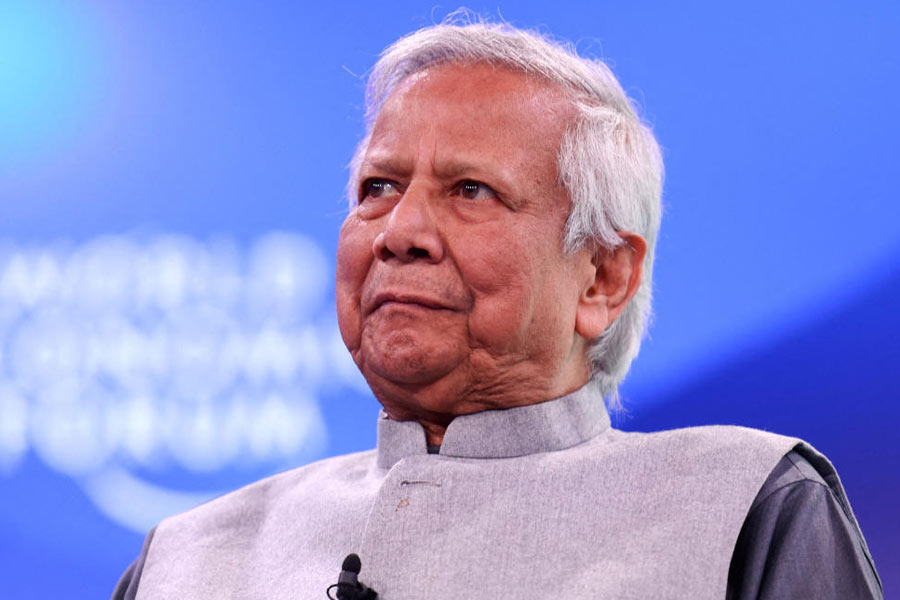The July Charter serves no "public purpose" and only advances the interests of individuals and advisers of Bangladesh's interim government seeking political benefit, a senior BNP leader said on Saturday.
The Bangladesh Nationalist Party (BNP) has emerged as a frontrunner in the country’s changed political landscape following the disbandment of deposed prime minister Sheikh Hasina’s Awami League.
“July Charter serves no public purpose,” BNP’s policy-making standing committee member Hafizuddin Ahmed said at an event, referring to the interim government's reform agenda incorporated in a charter.
BNP'S secretary general Mirza Fakhrul Islam Alamgir also attended the 1971 Liberation War veterans event.
Ahmed, more commonly known as Major Hafiz because of his military background, added that the Charter only “serves the interests of certain individuals and advisers (effectively ministers) who wish to gain political benefit in the future".
Ex-premier Khaleda Zia’s BNP, its once-ally and Bangladesh’s biggest Islamist party, Jamaat-e-Islami, and several other parties signed the drummed-up charter on November 17 at a ceremony which Yunus called “birth of a new Bangladesh”.
However, disputes arose among the parties over the enforcement of the charter, which was derived from reform proposals drafted by the National Consensus Commission, headed by Yunus himself.
The commission proposed that the charter be “automatically” implemented within 270 days unless the next parliament passes it, superseding the constitution, while Jamaat has demanded a referendum for its endorsement by November, ahead of the national election planned for February.
The BNP has proposed that the referendum be held on the date of the national election.
Jamaat also demanded holding the polls after the introduction of a proportionate representation system, overruling the existing constitutional method -- an idea sternly opposed by BNP.
Several constitutional experts called the commission proposal “ridiculous”, asserting that it would make the future parliament a mere rubber stamp.
Ahmed said the BNP gave several notes of dissent during protracted talks between political parties and the commission, but the commission incorporated several proposals “by force” and his party accepted them “reluctantly” in the interest of the planned elections. The July Charter sparked widespread controversy and confusion in political circles, raising questions about its enforceability, legitimacy, objectives and the motives of those promoting it, with some arguing that the document lacked public endorsement.
Ahmed, a 1971 veteran, alleged the interim government in the past one and a half years failed to recognise or respect the freedom fighters “who created this country”.
“In the past one and a half years, we have not heard them speak about the Liberation War,” he said.
“The reason is that many of those currently in influential positions in society, including within this interim government, did not participate in the war — some were even against it,” he said in an apparent reference to Jamaat, which was opposed to Bangladesh’s 1971 independence from Pakistan.
BNP general secretary Alamgir supplemented Ahmed, and said, "A force that opposed independence in 1971 is now trying to diminish the history of independence, and they only want to highlight the July Uprising" that toppled the past Awami League regime.
“I want to be very clear about this - there is no reason to forget 1971. '71 is the birthplace of our nation," Alamgir said.
Underscoring that all reforms were clearly mentioned in BNP’s previously charted out 31 points, he said, “We are in favour of reforms, but the next parliament would decide what proposals would be implemented." Another BNP leader and Zia’s adviser Moazzem Hossain Alal, meanwhile, demanded the disbandment of Jamaat for the atrocities it carried out during the 1971 Liberation War, siding with Pakistani troops.
“If Awami League can be disbanded for its barbaric repressions and snatching people's rights of franchise, Jamaat too must be banned for the genocide, rapes and the mass murders in 1971...the dual standard is not acceptable,” Alam said.
Except for the headline, this story has not been edited by The Telegraph Online staff and has been published from a syndicated feed.










